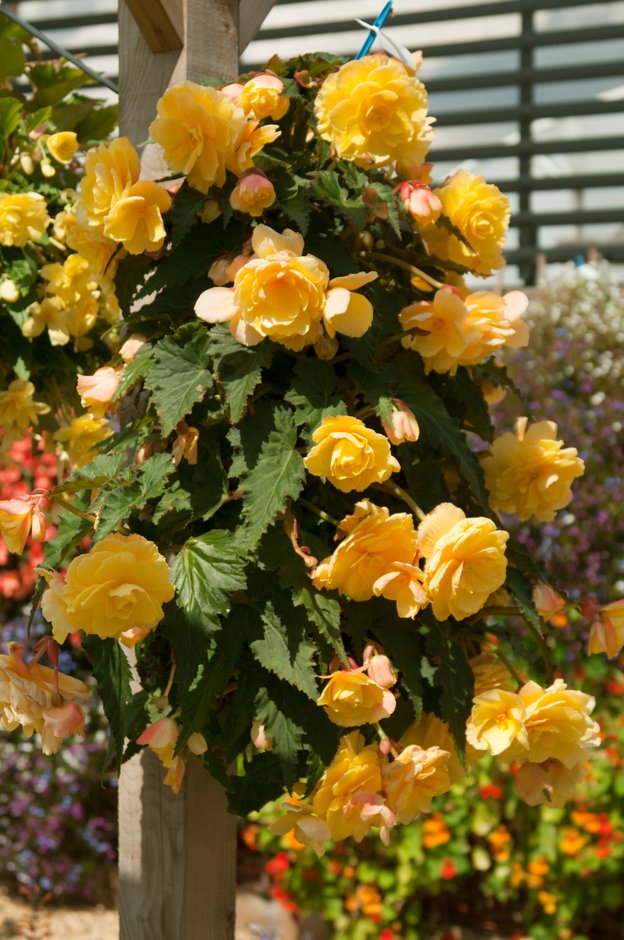Begonia 'Lemon Fizz' (Fragrant Falls Improved Series)
begonia 'Lemon Fizz'
'Lemon Fizz' is a trailing, tuberous perennial, to 30cm high, with fully double, fragrant blooms of orange-yellow edged with pink. The leaves are dark green above, pale green below, with purple flushing. Flowers mid-summer into autumn
Size
Ultimate height
0.1–0.5 metresTime to ultimate height
1–2 yearsUltimate spread
0.1–0.5 metresGrowing conditions
Moisture
Moist but well–drainedpH
Acid, NeutralColour & scent
| Stem | Flower | Foliage | Fruit | |
| Spring | ||||
|---|---|---|---|---|
| Summer | Orange Pink Yellow | Green Purple | ||
| Autumn | Orange Pink Yellow | Green Purple | ||
| Winter |
Position
- Full sun
- Partial shade
Aspect
West–facing or East–facing or South–facing
Exposure
Sheltered Hardiness
H1BBotanical details
- Family
- Begoniaceae
- Native to GB / Ireland
- No
- Foliage
- Deciduous
- Habit
- Trailing
- Potentially harmful
- Ornamental bulbs - not to be eaten. Wear gloves and other protective equipment when handling. Pets: Ornamental bulbs - not to be eaten - see the HTA guide to potentially harmful plants for further information and useful contact numbers
- Genus
Begonia can be annuals, evergreen or deciduous perennials or shrubs, with fibrous, tuberous or rhizomatous roots and usually asymmetrical leaves, often strikingly patterned, and small or large flowers, both male and female in the same cluster
- Name status
Accepted
How to grow
Cultivation
Plant tubers indoors in spring in light, well-drained, neutral compost. Plants may be grown permanently under glass in bright light shaded from direct sun. Otherwise plant out in moist, well-drained, fertile soil in sun or semi-shade when all risk of frost is past. Ideal for containers. See Begonias: outdoors for further advice.
Propagation
Propagate by basal cuttings or stem cuttings from side shoots
Suggested planting locations and garden types
- City and courtyard gardens
- Cottage and informal garden
- Patio and container plants
Pruning
Deadhead to prolong flowering
Pests
May be susceptible to caterpillars, mealy bugs, mites, glasshouse thrips, vine weevil and aphids
Diseases
May be susceptible to grey moulds, powdery mildews, stem rot and rhizome rot
Get involved
The Royal Horticultural Society is the UK’s leading gardening charity. We aim to enrich everyone’s life through plants, and make the UK a greener and more beautiful place.
